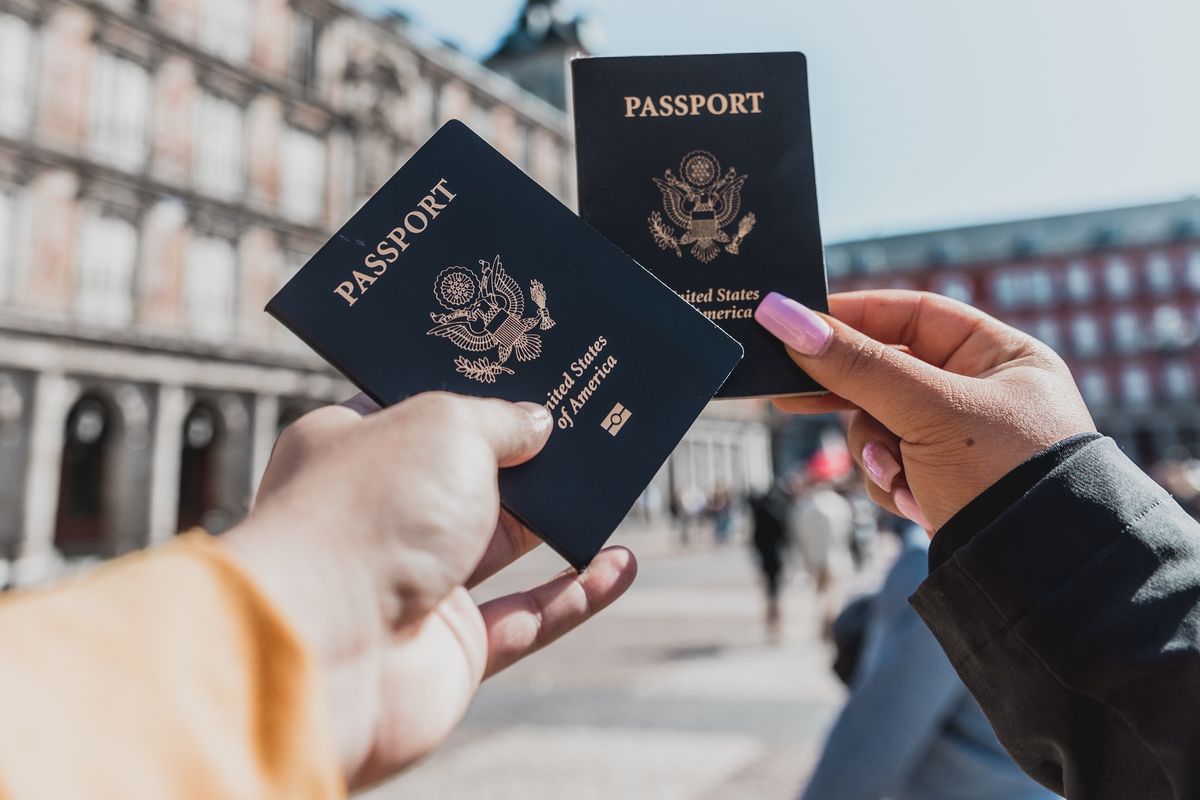The real reason you can't smile in passport photos is surprisingly practical
It has nothing to do with humans at all.

There's a reason you can't smile in passports and it's surprisingly practical.
Most of us have been trained since before we could talk to smile when someone is taking our picture. It's almost a Pavlovian response at this point, especially when that picture is going to be representative of you for years to come in an official capacity. Driver's license pictures usually involve people attempting to look their best, or at least as presentable as possible, complete with a smile.
Passport photos are no different, except when you get to the passport photo place with your freshly coifed hair, showing off that beautiful smile, you're told to cut it out. Well, maybe in nicer words, but the sentiment is still the same. Keep your teeth behind your lips; there's no smiling in passport photos. But why?
I've personally never understood why this was a thing for the government to be concerned about. You're likely getting your passport to go somewhere exciting or visit family in another country (which is also exciting), so why no smiles?
Technically, according to the State Department, you can smile, but only if you look like you don't want to. Kidding. In its Frequently Asked Questions, the State Department explains that smiling is allowed, "but make sure both your eyes are open and your mouth is closed in your photo." So essentially a closed-mouth smile rather than a big toothy grin. But it also can't be a smile that emits a lot of emotion since the website states also states that you must have a "neutral facial expression."
So it's not that you can't smile, it's that you can only do a very specific type of smile. In an interview with HuffPost, Karolina Turowska, a biometric photography and travel expert at Passport Photo.Online said, “The main reason for banning smiling is the introduction of facial recognition software at airports and other border control checkpoints.”
Seems the actual reason for the "ban" on smiling in passport photos doesn't have anything to do with postal service workers trying to keep you from living your best life. It's because of the robots...or at least the algorithms. Evidently, it's difficult for computer-based software programs to tell humans apart if our faces are contorted in a joyous way.
“Algorithms don’t work as we do. To compare a 3D face with a 2D passport photo, they need to pinpoint and measure the users’ facial features. It includes the distance between the pupils, ears, nose and mouth, the mouth’s and the eyes’ width, and many others. Smiling can make it harder, as it alters facial proportions,” Turowska told HuffPost.
Smiling isn't the only no-no in passport photos. According to US Passport Service Guide, you can get your passport rejected for a number of reasons and only one of them is smiling like The Joker. Wearing glasses, submitting an edited picture and using the wrong background are all reasons your passport photo can be denied.
If you're due to renew your passport or if you're going for your first one, it's best to review all the rules before submitting your photo or showing up at your nearest Walgreens. It's better to lead with caution on this one or it could delay you receiving your little book of world stamps. Happy traveling, folks.
- Woman shares quick tip on how to receive your passport fast ›
- Little girl thinks her mom is an alien from outer space after finding her passport ›
- The US State Department issued its first passport with an 'X' gender ... ›
- Woman has comically tragic adventure trying to renew passport - Upworthy ›
- Woman spots the 2 ways everybody 'smiles differently now' and it's impossible to unsee - Upworthy ›

